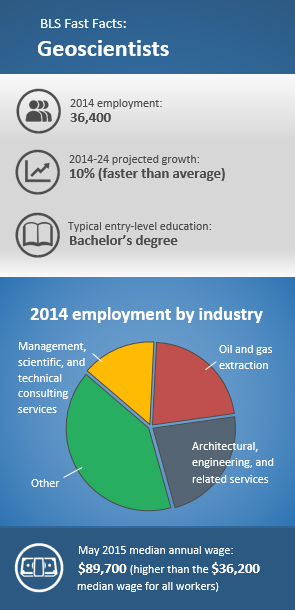All Categories
Featured
Table of Contents
Geophysical Methods in Medina Australia 2020
This work is progressively contracted out, so consultancies provide another source of employment. Consultancy firms vary in size, from very small business to large multinationals. Some consultancies are quite specialised in using particular geophysical strategies or operating in particular areas, while others provide a more varied series of services to their clients.
The extraction of gas from garbage dump sites is another area of employment and this might grow in the future. Expedition business may undertake work for building firms, public utility, mining companies and ecological agencies, so geophysicists may be utilized in any of these settings. Other companies include: geological surveysgovernment bodies and agenciesuniversities and research institutes.


Vacancies may be noted in the oil and gas sector press. Recruitment is affected by oil cost changes and the level of competitors for positions differs depending on this. Careers Days, which cover the full range of geoscience careers and are normally gone to by a number of crucial market employers, are run by The Geological Society.
Recent Advances In Optimized Geophysical Survey Design in Butler Australia 2020
Some of the large oil and gas business use a complete two-year structured training program throughout the breadth of geophysics, consisting of the opportunity to experience work in different groups prior to specialising in one area. Your training might consist of work on: existing wellsmagnetic and gravitational prospective field data analysisresearchrock analysis. Nevertheless, it's more normal for your preliminary training to be provided on the task.

There may be a probationary duration throughout which you work together with a skilled coworker. Competency-based appraisals happen frequently in many companies. In smaller sized firms, and for academic posts, there is not likely to be any formal training - you'll be expected to begin work straightaway and get skills as you go along.
If you work for a smaller sized company, you might discover that you require to take duty for organizing and moneying your own advancement and training. If you have a geology degree, subscription of The Geological Society can be useful for networking and for maintaining to date with the industry.
How To Become A Geologist Or Geophysicist in Forrestdale Western Australia 2022
You might also discover it helpful to sign up with the PESGB (The Petroleum Expedition Society of Great Britain, which has a geophysics special interest group. After a probationary duration, and once you have actually gained some experience, you might progress to senior geophysicist, then group leader and then into a senior function in management.
The ease of motion between functions depends upon the company structure. Research study at Masters or Ph, D level in a subject related to geophysics or geosciences might assist with your profession development and development. The employment market within the oil and gas industry is extremely depending on rate and this might impact your opportunities for profession development.
Not all tasks are reliant on the oil and gas markets. For skilled geophysicists, freelance consultancy provides a good path for career development. You can also specialise in a specific location of geophysics. As a geophysicist, you're likely to have several jobs throughout your working life. Global mobility is important for dealing with peaks and troughs in various nations at various times.
Geophysical Survey Requirements In California Waters in Hilton WA 2020
From geophysics, it's possible to concentrate on seismology (completing further training to become a seismic interpreter) or to move into associated areas such as engineering geology or hazard prediction.
Choosing what to study in college is a tough choice. Even if you know that your field of interest lies in science, what program of study is right for you?
But the first step to accomplishing your goal of ending up being a geophysicist is earning a degree. Even for entry-level positions in the field of geoscience, you'll require a bachelor's degree (a geophysicist college degree) from an accredited college or university. Some research study positions require candidates to hold master's degrees or perhaps Ph.
Geophysical Survey Flashcards in Kardinya Aus 2020
Postgraduate degree are especially important if you plan to teach at a four-year institution. Geophysicists apply physics concepts and strategies to study the gravitational, magnetic, and electrical fields of the earth. This enhances scientists' understanding of both the planet's interior core and its surface area. Geophysicists need to be able to: analyze rocks, photos, and other pieces of information conduct research study both in the field and in laboratories develop maps and charts of their findings compose reports To achieve all this, trainees require a specialized education for geophysicist careers.
As specified above, you'll require a bachelor's degree in geoscience or a related discipline, such as a physical science or a life sciences, to land an entry-level job. Trainees can likewise prepare by majoring in topics like: Biology Chemistry Computer system science Engineering Mathematics Physics The above geophysicist majors offer a more generalized technique to a single clinical discipline, but many programs need students to take one or more geology course.
Latest Posts
Geophysical Survey Definition in Bayswater Oz 2023
Geophysical Surveys: Definition & Methods in Ardross Australia 2020
What Is Geophysics And What Do Geophysicists Do? in Maddington WA 2023